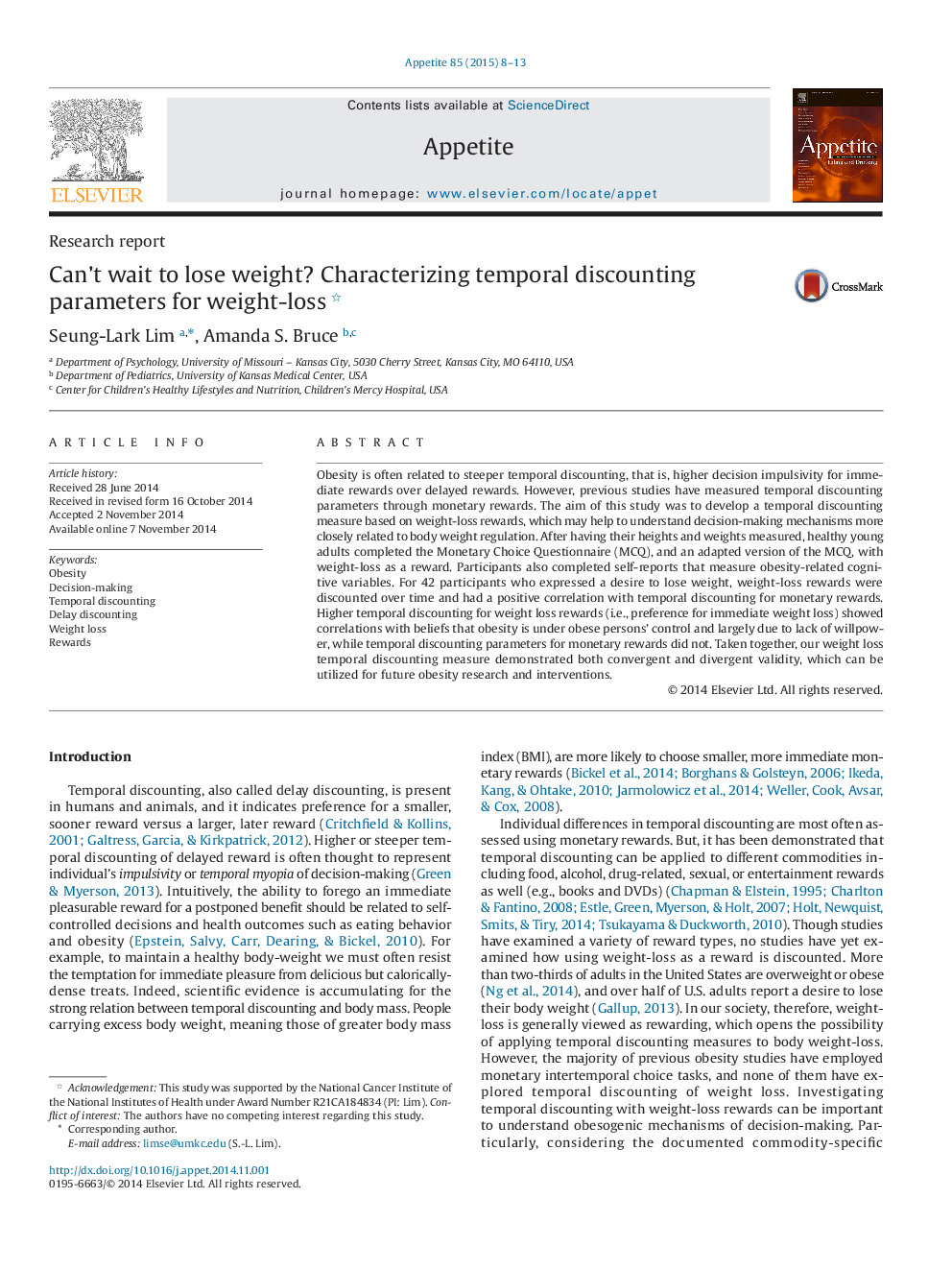| Article ID | Journal | Published Year | Pages | File Type |
|---|---|---|---|---|
| 7309322 | Appetite | 2015 | 6 Pages |
Abstract
Obesity is often related to steeper temporal discounting, that is, higher decision impulsivity for immediate rewards over delayed rewards. However, previous studies have measured temporal discounting parameters through monetary rewards. The aim of this study was to develop a temporal discounting measure based on weight-loss rewards, which may help to understand decision-making mechanisms more closely related to body weight regulation. After having their heights and weights measured, healthy young adults completed the Monetary Choice Questionnaire (MCQ), and an adapted version of the MCQ, with weight-loss as a reward. Participants also completed self-reports that measure obesity-related cognitive variables. For 42 participants who expressed a desire to lose weight, weight-loss rewards were discounted over time and had a positive correlation with temporal discounting for monetary rewards. Higher temporal discounting for weight loss rewards (i.e., preference for immediate weight loss) showed correlations with beliefs that obesity is under obese persons' control and largely due to lack of willpower, while temporal discounting parameters for monetary rewards did not. Taken together, our weight loss temporal discounting measure demonstrated both convergent and divergent validity, which can be utilized for future obesity research and interventions.
Related Topics
Life Sciences
Agricultural and Biological Sciences
Food Science
Authors
Seung-Lark Lim, Amanda S. Bruce,
